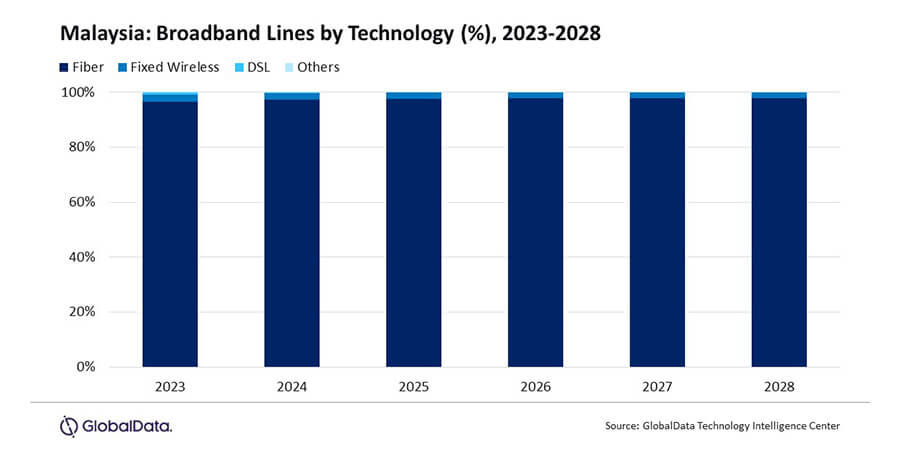According to GlobalData, a leading data and analytics company, fixed communication services revenue in Malaysia is expected to grow at a compound annual growth rate (CAGR) of 2.0% from US$1.9 billion in 2023 to US$2.1 billion in 2028. This growth will be driven by the fixed broadband service segment.
GlobalData's Malaysia Fixed Communications Forecast (Q2 2023) reveals that the revenue from fixed voice services will decline at a CAGR of 11.9% from 2023 to 2028. This is due to a decrease in circuit-switched subscriptions and a decline in fixed voice average revenue per user (ARPU) levels. Users are shifting from traditional telephony to mobile/OTT communication services.
On the other hand, revenue from fixed broadband services is expected to increase at a CAGR of 5.8% during the same period. This growth is attributed to the growing adoption of higher ARPU fiber-optic (FTTH/B) services. Sarwat Zeeshan, telecom analyst at GlobalData, explains that fiber lines are estimated to account for more than 95% of the total fixed broadband lines in 2023 and will continue to be the leading broadband technology through 2028. This is driven by the increasing demand for high-speed broadband connectivity and efforts by the government and telecom operators to upgrade and expand fiber broadband infrastructure in the country.
Telekom Malaysia is expected to lead both the fixed voice and fixed broadband segments in terms of subscriber share until 2028. The company's strong position in the fixed broadband segment is supported by its growing share in the FTTH/B service segment.
Telekom Malaysia, in partnership with the government and under the 12th Malaysia Plan (12MP), plans to deploy 4,370 fiber-optic network hubs in the country in two phases.





